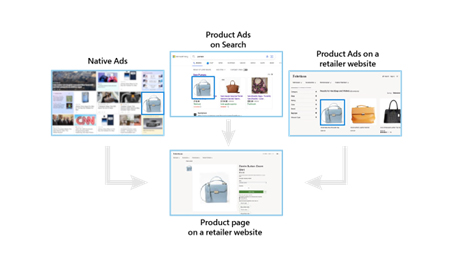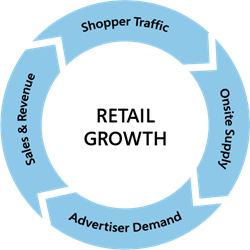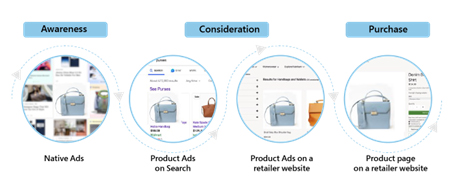E-commerce sites rely on customer support tickets––typically coming in via chat, email, SMS or phone call––to keep their customers happy and protect their brand, one issue at a time.
Those issues can range from late deliveries and damaged products to return complications and refund waiting periods. Recent data from e-commerce technology company Gorgias found that 27% of customers who place an order with an online brand have reached out to customer support at one point or another.
Addressed effectively, these issues can make a shopper feel great about the company and turn them into a loyal customer.
Alternatively, issues left unaddressed can ruffle customer feathers, generate negative reviews and even cause larger PR issues depending on how your brand handles the feedback.
The damaging effects of this can be exacerbated during the annual Black Friday and Cyber Monday shopping bonanza.
A customer receiving a flurry of holiday promos in their inbox before a support situation is handled can get turned off. Scheduled emails, set up to help the customer, now makes them feel ignored.
It’s a problem that can fly under the radar for many sites. But skillfully automating their open tickets can save a sale, and create a loyal lifelong customer.
The personalization expectation
Consumers give a lot of their data to brands, and in return, they expect smart digital relationships.
This means really tuning into multiple aspects of the customer’s situation, and especially one that has made them proactively reach out to you.
“Brands should have enough intelligence to not create awkward experiences when they’re trying to create a really positive one,” said Josh Mendelsohn, director of product marketing at marketing-automation platform Klaviyo. “Once the situation’s resolved, it can be a really positive experience. But in the heat of the moment, the brand’s automation may be failing them if they’re not thinking about the other interactions someone might be having with the brand at the same time.”
Even if you can rectify the situation after your promo messages go out, very few people go back and change their social posts or reviews––and overall, you’ve left a bad impression.
“Some of the most positive feelings come after a great support interaction where a customer had a problem, it was resolved really well and now they feel great about the brand,” said Mendelsohn.
How data integrations can power empathetic, relevant marketing automations
Consumers expect a lot from e-commerce brands. In these challenging economic times, many brands think of bumbling email experiences—such as review requests that are sent before the product gets delivered—as part of doing business.
But they don’t have to be.
The most effective retailers combine data across multiple platforms into a single source of truth. In Klaviyo, for example, retailers can get delivery receipts from one software provider, for instance, and automate a check for ticket-resolution from another, Mendelsohn said, to ensure customers only get review requests and new email promotions once their purchase has been successful.
Brands also can set up automated email and SMS flows to respond to common scenarios. Customers value getting messages that aren’t just “your package has been delayed,“ but rather goes beyond that to show compassion. A better message might be, “We understand this is a stressful time of year. We’re really sorry that your package has been delayed, and as an apology, here’s 10% off your next purchase.”
“Taking the time to write those messages in a human way builds a lot of brand equity,” said Mendelsohn. And simply building dynamic segments for your most common customer support issues prior to BFCM can help you make more during the selling season, and long after.
Via an integration with e-commerce customer-service platform Gorgias, Klaviyo can also find a customer’s satisfaction rating with how their issue was resolved. If a buyer has a resolved ticket and a high satisfaction score, marketers can grab that opportunity––and drop those customers back into the regularly scheduled promo cadence.
Of course, if they’ve only given your brand one star, you might want to leave them out of a promotion or speak to them differently, Mendelsohn noted. Marketers may want to minimize BFCM communications about product drops, special offers and promotions to customers who have had a bad experience. Now that you have the satisfaction data, you can think about resuming communicating with customers based on how they’re feeling about you.
The Gorgias and Zendesk integrations also allow for two-way SMS messaging. Customers who respond with SMS to create a support ticket get added to the larger prioritization pool and get responses back in the same channel they used to reach out, just like every other customer.
“When we think about building smarter digital relationships or expectations from consumers, we know that people value being talked to as a human,” said Mendelsohn. “When you’re turning those negative interactions into positive ones, and acknowledging it with the consumer, that’s what really strengthens those relationships.”
And that’s the kind of thing that spreads, he noted. A customer will tell a friend about an interaction, whether it was a terrible or great support experience. That can be a powerful determinant in building long-term relationships.
Don’t forget about re-acquisition
Rarely will you need to acquire a customer only once. Consumers have a ton of choice in the market, and are bombarded with ads and messages from other brands. It’s time to understand that customer acquisition may only be temporary, and reframe retention as reacquisition.
“Brands are shifting from the thought process of ‘Once we have a customer, we have them forever,’ to ‘Once we have a customer, we get to continue to stay in a relationship with them and reacquire,’” said Grace Clarke, independent owner of Grace Clarke Consulting.
How does this play into resolving customer support tickets? Well, you can easily create a segment of customers who were highly satisfied by their issue resolution––and then monitor their activity, brand engagement, and conversion overtime.
If a customer had a positive support interaction but hasn’t purchased in the last 90 days, and also has a good predicted lifetime value, Klaviyo can build these details into an audience, put it in a brand’s database to push onto an ad platform saying, “We really miss you, we’d love you to come back.”
“It’s a subconscious thing for most people,” Mendelsohn said. “A customer might see the message and wonder why they haven’t bought from the brand in a while. A lot of that can be really subtle but also really effective.”















 Blah (@yousayblah)
Blah (@yousayblah)